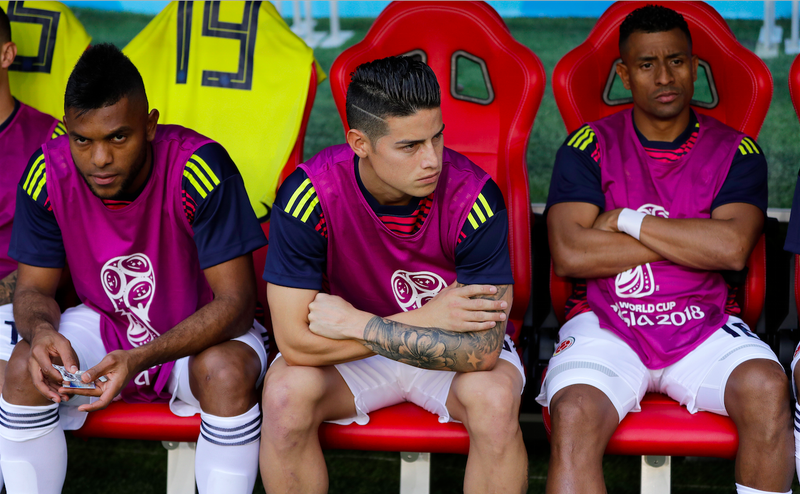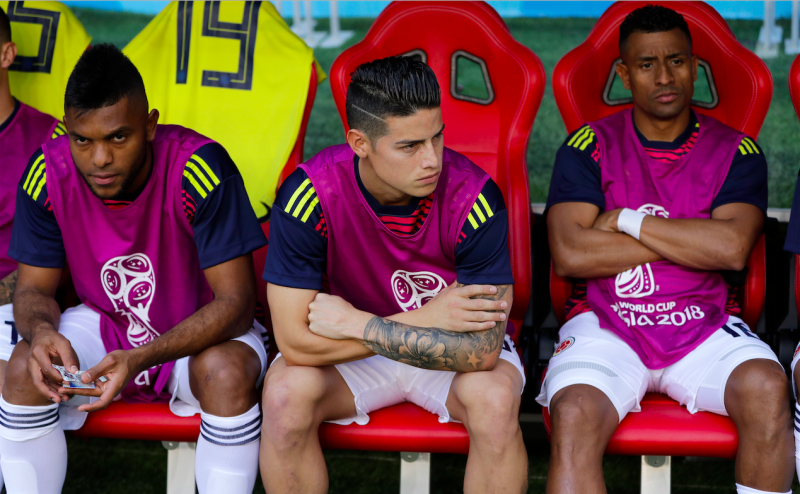
While watching the FIFA World Cup a few weeks ago, my boss noticed players sitting in race car seats, and ordered me to figure out why. So I reached out to one of the biggest race car seat manufacturers, Recaro. Here’s what I learned.
While I’m not surewho makes the exact seats coddling the butts of soccer players at this year’s World Cup (since numerous inquiries to Fédération Internationale de Football Association went unanswered), I did learn about how heavily-bolstered sports car seats wound up on the sidelines of a football pitch in the first place. At least, according to German automotive seat maker, Recaro.
“The story about the car seats at the sidelines goes back to the 1990s,” Tilman Schaefer, a company representative told me via email. He went on, saying the owner of Recaro at the time, Ulrich Putsch, was on the board of the German soccer team F.C. Kaiserslautern, and apparently gave the team’s manager Kalli Feldkamp a sports car seat because “the guy had back problems.”
It wasn’t long before, in 1994 according to the company’s website, the rest of the team wound up sitting on a “custom-tailored players bench,” with Schaefer saying: “They put the seat right next to the bench. Because the players thought the seat to be just gorgeous Ulrich had a complete bench produced for the home team” as a part of a sponsorship deal.
Advertisement
That’s when customized sports car-inspired seats began taking over the sidelines around the world, and other seat manufacturers from other industries also wanted in, with Schaefer telling me:
Other teams became so excited that they ordered benches from RECARO – so this became a special sales project over the years.
Other seat producers–even airline seats–followed line and started to supply seats to teams they sponsor.
So this is kind of a standard today on soccer sidelines (plus baseball in Japan, plus business seats in the stadiums). In Europa and Japan RECARO is probably the biggest supplier.
Advertisement
Today, according to Recaro, over 70 top soccer teams—including Borussia Dortmund, Real Madrid, Debreceni Vasutas SC and Ferencváros Budapest—sit on Recaro bucket seats.
As for the reasons why, Recaro’s spokesperson put it simply: “[The] seats are very comfortable and often supplied with a seat heating for the winter. And [they] look great.”
So while I’m not sure who makes the seats for this year’s World Cup (seats that still have the seatbelt holes that would be used for a five-point racing harness), it look seems like this whole trend began in 1994 because of one man’s back problems.













